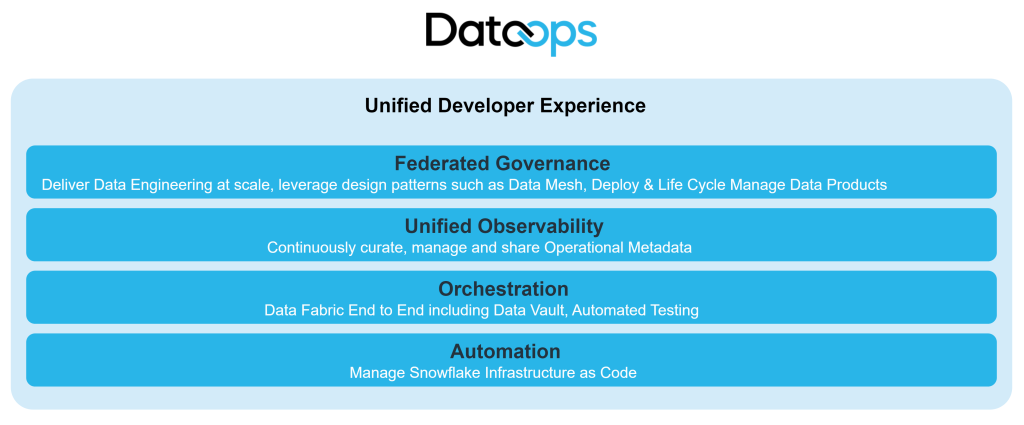
DataOps is a new buzzword that has been trending in the tech industry for some time now. But what exactly is DataOps? And what are the features that make it so important? In this article, we’ll explore everything you need to know about DataOps and its features.
What is DataOps?
DataOps is an emerging methodology that combines the principles of DevOps with data management. It aims to streamline the data pipeline by integrating the development, deployment, and management of data systems. The goal of DataOps is to create a culture of collaboration and automation that enables organizations to deliver high-quality data products faster and more efficiently.
Why is DataOps important?
In today’s fast-paced business environment, data is a critical asset that organizations must manage effectively. However, traditional methods of data management are often slow, inefficient, and error-prone. DataOps offers a new approach that addresses these challenges and provides several benefits, including:
- Faster time-to-market for data products
- Improved data quality and reliability
- Increased collaboration between teams
- Better visibility and control over the data pipeline
- Reduced operational costs
What are the DataOps features?
DataOps comprises several features that enable organizations to manage data more effectively. Let’s take a closer look at some of these features.
Automation
Automation is a key feature of DataOps. By automating data processes, organizations can eliminate manual errors, reduce lead times, and increase the efficiency of their data pipeline. Automation can be applied to several areas, including data ingestion, transformation, validation, and deployment.
Continuous Integration and Deployment
Continuous Integration and Deployment (CI/CD) is another essential feature of DataOps. CI/CD is a set of practices that enable organizations to deliver software and data products more frequently and reliably. By integrating testing and deployment into the development process, organizations can reduce the risk of errors and improve the quality of their data products.
Version Control
Version control is a critical aspect of data management. It enables organizations to track changes to data products over time, collaborate effectively, and revert to previous versions if necessary. Version control can be applied to several areas, including data models, data pipelines, and data sets.
Monitoring and Alerting
Monitoring and alerting are essential features of DataOps. By monitoring data processes in real-time, organizations can detect issues before they become critical and take corrective action quickly. Alerting enables teams to receive notifications when specific events occur, such as data quality issues, pipeline failures, or performance degradation.
Data Governance

Data governance is a set of practices that ensure the proper management of data assets. It includes policies, procedures, and standards that govern data quality, security, privacy, and compliance. Data governance is critical for organizations that handle sensitive data or are subject to regulatory requirements.
Conclusion
DataOps is a new methodology that offers a new approach to data management. By combining the principles of DevOps with data management, organizations can streamline their data pipeline and deliver high-quality data products faster and more efficiently. DataOps comprises several features, including automation, continuous integration and deployment, version control, monitoring and alerting, and data governance. By leveraging these features, organizations can maximize the value of their data assets and gain a competitive advantage in their industry.